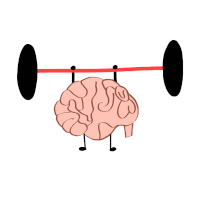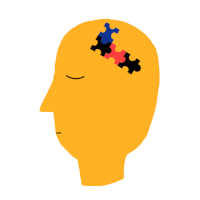
Did Your Child Just Bring Home Another Low Math Grade?
We help parents understand what their children need to do to become confident and successful in math.

- Access 11+ years of successful math tutoring experience and 13 years of competitive math experience
- Support your child in their transition into a confident, successful, independent, A-student, without teaching them
- Help your child use math learning methods and mindset responsible for 100s of 90%+ scores on tests and final grades including AP, Honors classes
- Help your child skyrocket math grades to B+ or higher, boost confidence and succeed in math long-term
- Connect with other parents of teenagers who want their children to succeed in math
Join Our FREE Math Help Facebook Group For Parents to take the first step towards your child’s math success.

Hosted by …
Amadeus Ciok
Entrepreneur, Educator. Founder of Learn Vibrant Math Tutoring. 11 Year of math tutoring experience. 13 years of competitive math experience.
Amadeus is an inspirational teacher. He is not only an excellent teacher, he is an awesome mentor for my kids. His work ethic comes through in every interaction.

Judy Crawford
Cupertino, CA


5-Star Math Tutoring Company based in the heart of Silicon Valley, Mountain View, CA.

We turn children who are behind in math, lack confidence in their math and learning skills, struggle with homework and often experience math anxiety, into confident, successful students who fearlessly face challenges in academia and outside.
By experiencing their “math transformation”, they realize that given the right methods, they can develop powerful learning skills and become successful in math, and in anything else they want to succeed at.
I am very impressed with the high quality tutoring that Learn Vibrant Math Tutoring provided to my daughter.

Nina Nielsen
Woodside, CA
I recommend Learn Vibrant to anyone who wants their kids to love math!

Carola Vasquez-Rico
Palo Alto, CA

11 years of successful tutoring experience and 100s of students helped
Proven track record of consistent 90+% results up to Calculus BC
Consistent 5-star ratings from parents
Worked with the most prestigious and demanding schools in Bay Area: Mission, Lynbrook, Monta Vista, Mitty, Kehillah, Gunn, Cupertino and more.
A lot of children think they aren’t good enough to do well in math.
A lot of children dislike math and don’t understand its importance in their life. This affects them in many ways. If your child struggles with math, you are likely to notice several (or all) of these issues:- your child isn’t motivated to learn math
- even if you can get your child to study, they don’t do their best
- your child gets frustrated and impatient when they can’t grasp a concept or get the right answer
- your child gives up quickly when faced with challenging math topics
- your child often asks “when will I ever use this in real life??”
You’re probably wondering WHY this is happening.
Is your child actually simply not able to understand math? How could you motivate them more? What could you do differently? Are you doing something wrong? What would help them try harder, understand more or even study at all? This group will give you answers to all of these questions and more. You will learn exactly what to do to help your child, and what your child should do to improve.Your child’s math difficulties ruin their confidence, and long-term success.
Your child likely doesn’t believe they can actually do well in math. They might have been told they aren’t good enough, and every low grade simply reaffirms that belief. Every time they can’t understand a concept in class, they understand it as “I’m stupid.” Every time they get stuck on a problem, they interpret it as “I’m stupid.” Every time they have a question and everyone else seems to get the concept, they interpret is as “I’m dumber than everyone else.” Hence, they avoid math. They don’t want to study, they don’t want to do homework, or pay attention in class. Since learning math makes them feel inadequate, dumb, not good enough or stuck, every time, they try to avoid it at all cost. And what’s the point anyways? What’s the point of getting better at Pythagorean theorem, if they think they won’t ever need it in “real life”?To make the matters worse, schools provide zero support.
Yes, some teachers are great. But they still have 30 children in each class. School system focuses on giving out several examples and handing out homework. That’s it. They are focused on presenting (not teaching) facts and testing. No one ever answers your child’s fundamental questions:- When will I use math in real life?
- Am I actually able to understand math? Is something wrong with me?
- Why do I not seem to get math as well as other children?
- How can I improve?
AND, no one ever helps your child understand how learning actually works!
Most children are shamed for asking questions (or ignored), punished for incorrect answers, and looked down upon for asking for help. Hence, they don’t ask questions and don’t ask for help!How can they possibly learn and improve?
In this group, you will discover:
What you should and should NOT do as a parent to support your child on their way to math success.

How to motivate and inspire your child to learn more, be more independent and aim higher.

What not to do if you want to help your child improve.

How to make learning and math more interesting and fun to ignite your child’s passion for math.
In this group, you will discover:
What your child should do to succeed in math.

How your child can get good at math, no matter how behind they are – and how others have gone from failing to thriving.

Why your child is struggling to understand math – and what to do break through that wall.

How to go from 60% or less in math and struggling, to 90% or more, stress-free and thriving
In this group, you will discover:
Proven strategies and how-to’s to get to B+ level, or straight A and beyond.

How your child can get As and Bs consistently (proven strategies)

How to get 90% and above on every test (proven strategies)

How to make math more effortless, more fun, more interesting and less annoying

How to boost your child’s confidence to aim higher and study harder

Our Goal is to make your child a confident, independent, A-student in math.
- Access 11+ years of successful math tutoring experience and 13 years of competitive math experience
- Support your child in their transition into a confident, successful, independent, A-student, without teaching them
- Help your child use proven math learning methods and mindset responsible for 100s of 90%+ scores on tests and final grades including AP, Honors classes, up to Calculus BC
- Help your child skyrocket math grades to B+ or higher, boost confidence and succeed in math long-term
- Connect with other parents of teenagers who want their children to succeed in math
Join Our FREE Math Help Facebook Group For Parents to take the first step towards your child’s math success.

Did Your Child Just Bring Home Another Low Math Grade?
We help parents understand what their children need to do to become confident and successful in math.

- Access 11+ years of successful math tutoring experience and 13 years of competitive math experience
- Support your child in their transition into a confident, successful, independent, A-student, without teaching them
- Help your child use math learning methods and mindset responsible for 100s of 90%+ scores on tests and final grades including AP, Honors classes
- Help your child skyrocket math grades to B+ or higher, boost confidence and succeed in math long-term
- Connect with other parents of teenagers who want their children to succeed in math
Join Our FREE Math Help Facebook Group For Parents to take the first step towards your child’s math success.

Hosted by …

Amadeus Ciok
Entrepreneur, Educator. Founder of Learn Vibrant Math Tutoring. 11 Year of math tutoring experience. 13 years of competitive math experience.
Amadeus is an inspirational teacher. He is not only an excellent teacher, he is an awesome mentor for my kids. His work ethic comes through in every interaction.

Judy Crawford
Cupertino, CA

5-Star Math Tutoring Company based in the heart of Silicon Valley, Mountain View, CA.

We turn children who are behind in math, lack confidence in their math and learning skills, struggle with homework and often experience math anxiety, into confident, successful students who fearlessly face challenges in academia and outside.
By experiencing their “math transformation”, they realize that given the right methods, they can develop powerful learning skills and become successful in math, and in anything else they want to succeed at.

11 years of successful tutoring experience and 100s of students helped
Proven track record of consistent 90+% results up to Calculus BC
Consistent 5-star ratings from parents
Worked with the most prestigious and demanding schools in Bay Area: Mission, Lynbrook, Monta Vista, Mitty, Kehillah, Gunn, Cupertino and more.
A lot of children think they aren’t good enough to do well in math.
A lot of children dislike math and don’t understand its importance in their life. This affects them in many ways. If your child struggles with math, you are likely to notice several (or all) of these issues:- your child isn’t motivated to learn math
- even if you can get your child to study, they don’t do their best
- your child gets frustrated and impatient when they can’t grasp a concept or get the right answer
- your child gives up quickly when faced with challenging math topics
- your child often asks “when will I ever use this in real life??”
You’re probably wondering WHY this is happening.
Is your child actually simply not able to understand math? How could you motivate them more? What could you do differently? Are you doing something wrong? What would help them try harder, understand more or even study at all? This group will give you answers to all of these questions and more. You will learn exactly what to do to help your child, and what your child should do to improve.Your child’s math difficulties ruin their confidence, and long-term success.
Your child likely doesn’t believe they can actually do well in math. They might have been told they aren’t good enough, and every low grade simply reaffirms that belief. Every time they can’t understand a concept in class, they understand it as “I’m stupid.” Every time they get stuck on a problem, they interpret it as “I’m stupid.” Every time they have a question and everyone else seems to get the concept, they interpret is as “I’m dumber than everyone else.” Hence, they avoid math. They don’t want to study, they don’t want to do homework, or pay attention in class. Since learning math makes them feel inadequate, dumb, not good enough or stuck, every time, they try to avoid it at all cost. And what’s the point anyways? What’s the point of getting better at Pythagorean theorem, if they think they won’t ever need it in “real life”?To make the matters worse, schools provide zero support.
Yes, some teachers are great. But they still have 30 children in each class. School system focuses on giving out several examples and handing out homework. That’s it. They are focused on presenting (not teaching) facts and testing. No one ever answers your child’s fundamental questions:- When will I use math in real life?
- Am I actually able to understand math? Is something wrong with me?
- Why do I not seem to get math as well as other children?
- How can I improve?
AND, no one ever helps your child understand how learning actually works!
Most children are shamed for asking questions (or ignored), punished for incorrect answers, and looked down upon for asking for help. Hence, they don’t ask questions and don’t ask for help!How can they possibly learn and improve?
In this group, you will discover:
What you should and should NOT do as a parent to support your child on their way to math success.

How to motivate and inspire your child to learn more, be more independent and aim higher.

What not to do if you want to help your child improve.

How to make learning and math more interesting and fun to ignite your child’s passion for math.
In this group, you will discover:
What your child should do to succeed in math.

How your child can get good at math, no matter how behind they are – and how others have gone from failing to thriving.

Why your child is struggling to understand math – and what to do break through that wall.

How to go from 60% or less in math and struggling, to 90% or more, stress-free and thriving
In this group, you will discover:
Proven strategies and how-to’s to get to B+ level, or straight A and beyond.

How your child can get As and Bs consistently (proven strategies)

How to get 90% and above on every test (proven strategies)

How to make math more effortless, more fun, more interesting and less annoying

How to boost your child’s confidence to aim higher and study harder

Our Goal is to make your child a confident, independent, A-student in math.
- Access 11+ years of successful math tutoring experience and 13 years of competitive math experience
- Support your child in their transition into a confident, successful, independent, A-student, without teaching them
- Help your child use proven math learning methods and mindset responsible for 100s of 90%+ scores on tests and final grades including AP, Honors classes, up to Calculus BC
- Help your child skyrocket math grades to B+ or higher, boost confidence and succeed in math long-term
- Connect with other parents of teenagers who want their children to succeed in math